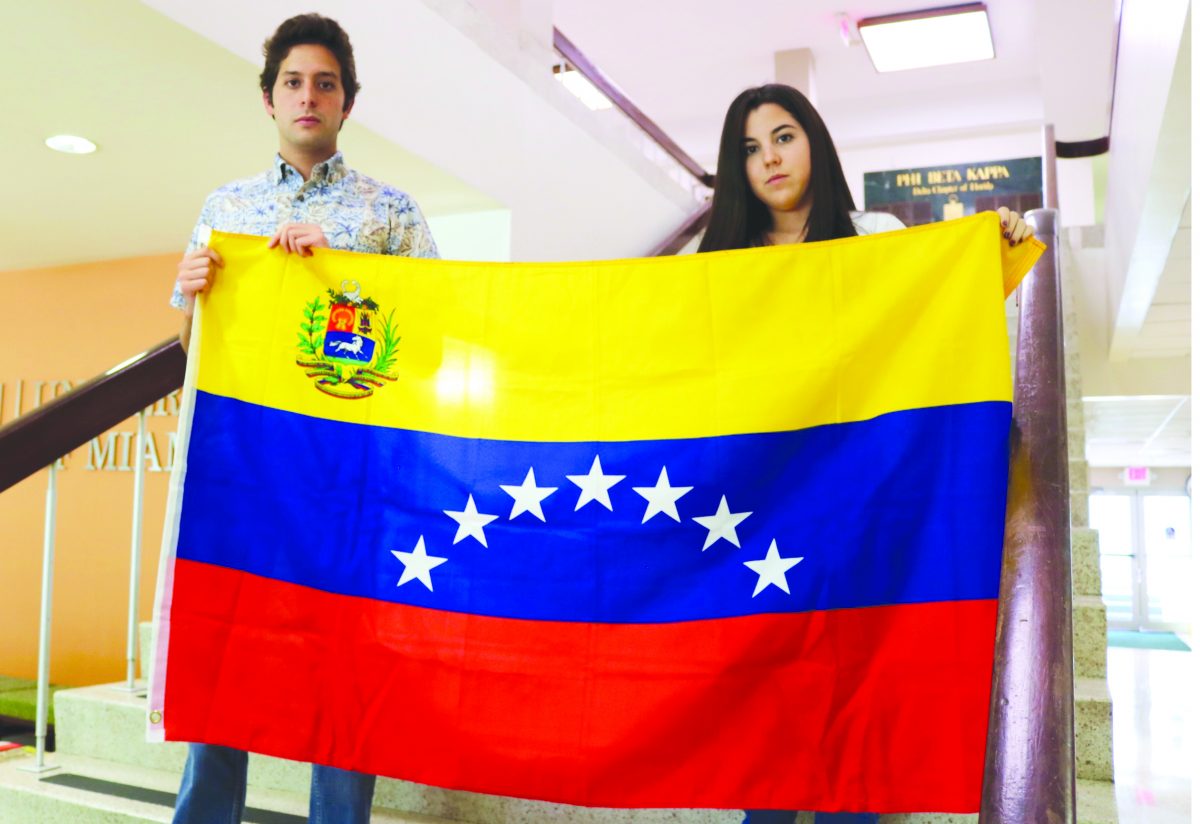
Representatives of a University of Miami Venezuelan student organization say President Trump is doing the right thing by including their country on his controversial travel ban list.
In place since December, the ban prevents nationals from seven countries from receiving visas to enter the United States. The countries are Libya, Iran, Somalia, Syria, Yemen, North Korea and Venezuela.
After Trump created the policy, many immigration proponents criticized the president, saying that the ban unfairly targets mostly Muslim-majority nations. Protests have been waged in and out of the nation’s courtrooms.
But Venezuelan nationals living in the United States are not likely to be among the protesters, say two representatives of UNIVEN, the Venezuelan student organization at UM.
“At first I was surprised that the name of our country was on the list,” said Daniela Orlando, co-president of UM’s Venezuelan student organization, UNIVEN. “What’s going on? What is this about?”
First, it was not about restricting students from entering, she learned. The order, which was upheld by the Supreme Court in June, grants exceptions for student visas, so UM’s 104 Venezuelan students as well as eight students from the other banned countries should be able to continue their studies at UM, university officials say.
Orlando, a sophomore biomedical and motion pictures major, then learned that travel restrictions in the case of Venezuela apply only to people who are part of the Venezuelan government or regime, but not the country’s citizens at large.
Keeping Venezuelan government officials and their relatives out of the United States is a good thing, Orlando said, because it is the Venezuelan government that is responsible for the country’s rampant corruption and poverty.
“It is the best thing that could happen,” Orlando said of Venezuela’s inclusion on the travel ban. “If they are part of the government, I’m sorry, they cannot come in. They come here and spend money, money that they are stealing from us there.”
Although the Trump administration has been vocal about its opposition to Venezuela’s government, the language in the ban only faults Venezuelan officials for not sharing “public-safety and terrorism-related information adequately” with the United States. According to Trump’s order, those officials have not cooperated with the Department of Homeland Security in identifying visa seekers from Venezuela who could be security risks.
Gelys Chacin, UNIVEN’s adviser, said the impact of the ban, however, keeps out the people who are responsible for the country’s decline.
“Thank God, this government has opened its arms to us,” Chacin said of the Trump administration. “It is just sad to see all of the corruption and the people starving, dying for lack of nutrition and medicine. It breaks my heart,” said Chacin, who works as an analyst in the Office of the University Registrar at UM.
Venezuela, whose economy was once buoyed by its vast wealth of natural resources, is accused by government opponents of corruption and mismanagement. There have been repeated protests of President Nicolás Maduro, who has been in power since 2013. The country saw its currency rate plummet, resulting in food shortages. Thousands of citizens have left, fleeing to neighboring countries and the United States.
Venezuelan students at UM have said on their trips home they have witnessed people waiting in “enormous” lines outside of supermarkets in hopes that the stores would have basic products such as rice, toilet paper, flour and toothpaste. The situation has gotten to a point that people will go as far as to search through trash to find food, students said.
Maduro’s reelection in May has been called a sham by its many critics, protests continue, and the International Monetary Fund recently predicted inflation will reach 13,000 percent this year.
“They are a corrupt class of politicians that do not care about the country or the people that perhaps once, voted for their party and put them in power,” said Chacin, who further detailed her concern in an email. “They only care for themselves and their bank accounts. They do not deserve to be able to enjoy or spend in the USA, or any other country in the world, the money they steal from Venezuelans.”
To help the people suffering in Venezuela, UNIVEN set up collection boxes last year in the Ashe Administration building and at the University Center. The university community was asked to donate medical supplies such as bandages, eye drops and ibuprofen, and money. To ensure that the donations go to people who need it, UNIVEN has identified three reputable non-governmental organizations that it helps, Chacin said.
The effort will continue again in the fall.
“I want to invite all of the Cane community to join us and help us, not as Venezuelans or Latins but as a community,” Orlando said.
First Impression news staff contributed to this report.





